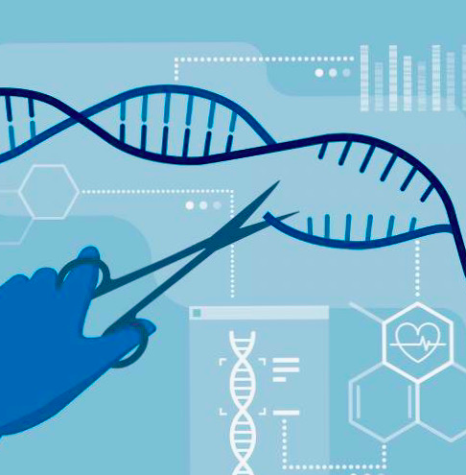A few interesting STEM careers
STEM encompasses of course science, technology, engineering and mathematics — very broad categories. However, most students are unaware of the full extent of job opportunities available with a degree in these fields. Many people’s minds may automatically jump to categorizing potential careers as common ones in healthcare, or simply working as an engineer.
Here are some different types of jobs that may not cross one’s mind when it comes to obtaining a degree in STEM.
- Patent Lawyer
Law and STEM — who would have thought? According to Purdue University, patent lawyers “are lawyer-scientists who review and understand advances in technology, and explain and argue differences in technology to judges, juries and Patent Office Examiners.”
Undergraduate majors for patent attorneys include physics, engineering, chemistry and biochemistry. After four years of college, the next step is three years of law school.
- Data Scientist/Analyst
Vastly different industries likely have one thing in common — using data to support claims they are making and gathering data in order to grow. That is where a data analyst comes in.
“Regardless of which industry they work in, data analysts can expect to spend their time developing systems for collecting data, seeking meaningful patterns and compiling their findings into reports that can help improve their company,” Kirsten Slyter said for Rasmussen University.
Common undergraduate degrees that employers look for in this position include data science, applied mathematics, statistics and computer science.
- Agricultural and Food Scientist
According to the U.S. Bureau of Labor Statistics, agricultural and food scientists “play an important role in maintaining and expanding the nation’s food supply. Many work in basic or applied research and development. Basic research seeks to understand the biological and chemical processes by which crops and livestock grow. Applied research seeks to discover ways to improve the quality, quantity, and safety of agricultural products.” (Bls.gov).
A bachelor’s degree in the sciences (agriculture or biology or chemistry preferred) is required for this role, and many people who work in this field hold advanced degrees. They also have flexibility in where they work, as some work in the fields, some in laboratories and some in offices. There are 4100 openings each year and it is rapidly growing, according to Bls.gov.
- Respiratory Therapists
There are several careers in healthcare available that students may not know too much about or know of at all. With the COVID-19 pandemic, some light was shed on the incredibly important role of respiratory therapists.
“Respiratory therapists work closely with registered nurses, physicians and surgeons, and medical assistants. They use various tests to evaluate patients. For example, respiratory therapists administer pulmonary function tests to assess lung capacity by having patients breathe into an instrument that measures the volume and flow of oxygen when they inhale and exhale. Therapists also may take blood samples and use a blood gas analyzer to test oxygen and carbon dioxide levels.” (Bls.gov)
Some employers prefer having a bachelor’s degree in addition to completing an associate’s degree in respiratory therapy at an accredited institution.
There are hundreds, if not thousands, of jobs like these out here for students to consider when deciding what career path to follow. No one should feel as if their options are limited to the jobs most commonly associated with their degree.
In addition to industry, continuing education and working in academia is a great route to pursue, as well. The U.S. Bureau of Labor Statistics that was referenced earlier is an official government website that serves as a strong tool for job searching and finding different careers. It also provides relevant information and statistics about these occupations.
Here is the link to the occupation part of the site: https://www.bls.gov/bls/occupation.htm












